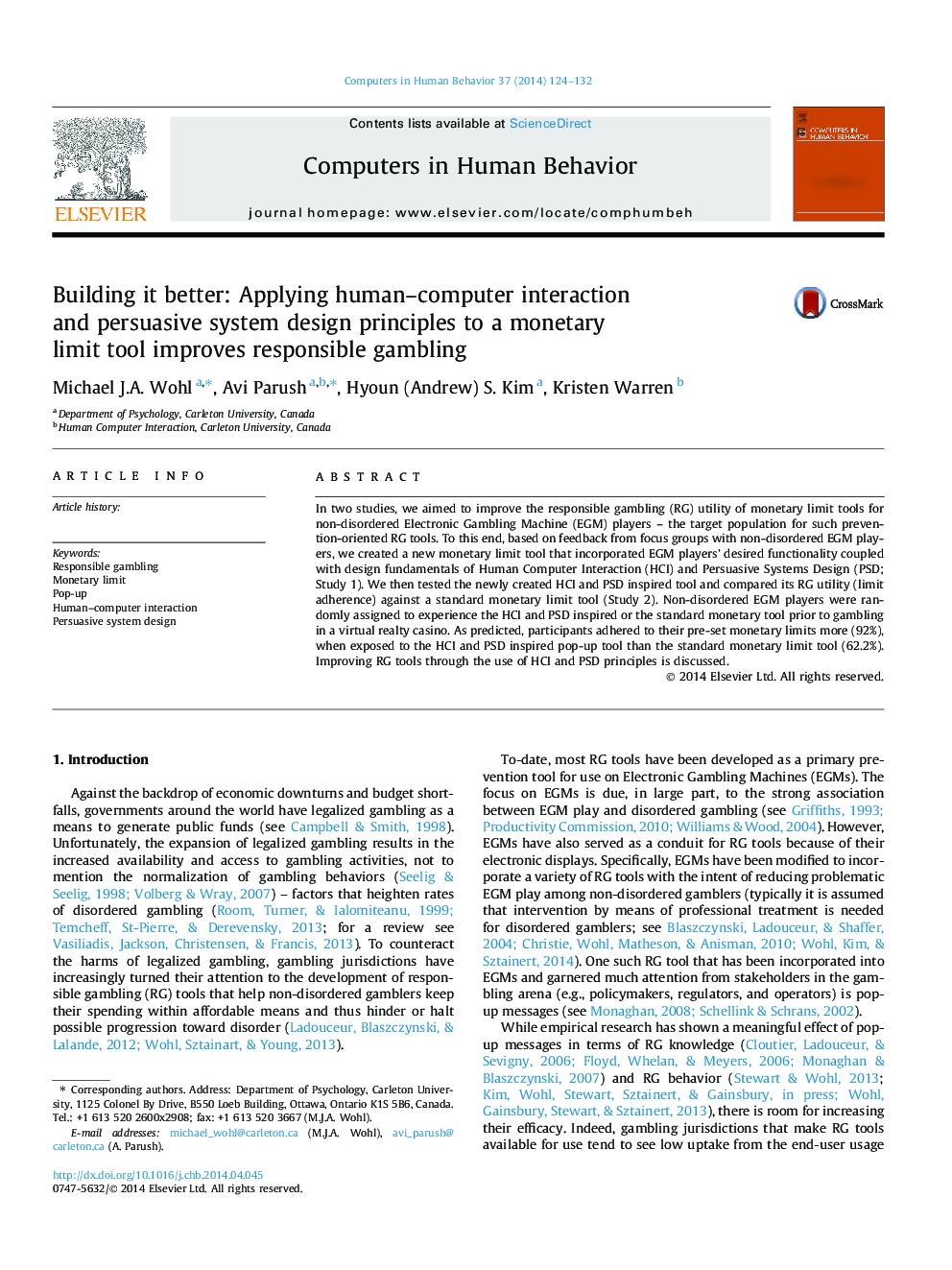| Article ID | Journal | Published Year | Pages | File Type |
|---|---|---|---|---|
| 6838960 | Computers in Human Behavior | 2014 | 9 Pages |
Abstract
In two studies, we aimed to improve the responsible gambling (RG) utility of monetary limit tools for non-disordered Electronic Gambling Machine (EGM) players - the target population for such prevention-oriented RG tools. To this end, based on feedback from focus groups with non-disordered EGM players, we created a new monetary limit tool that incorporated EGM players' desired functionality coupled with design fundamentals of Human Computer Interaction (HCI) and Persuasive Systems Design (PSD; Study 1). We then tested the newly created HCI and PSD inspired tool and compared its RG utility (limit adherence) against a standard monetary limit tool (Study 2). Non-disordered EGM players were randomly assigned to experience the HCI and PSD inspired or the standard monetary tool prior to gambling in a virtual realty casino. As predicted, participants adhered to their pre-set monetary limits more (92%), when exposed to the HCI and PSD inspired pop-up tool than the standard monetary limit tool (62.2%). Improving RG tools through the use of HCI and PSD principles is discussed.
Related Topics
Physical Sciences and Engineering
Computer Science
Computer Science Applications
Authors
Michael J.A. Wohl, Avi Parush, Hyoun (Andrew) S. Kim, Kristen Warren,
